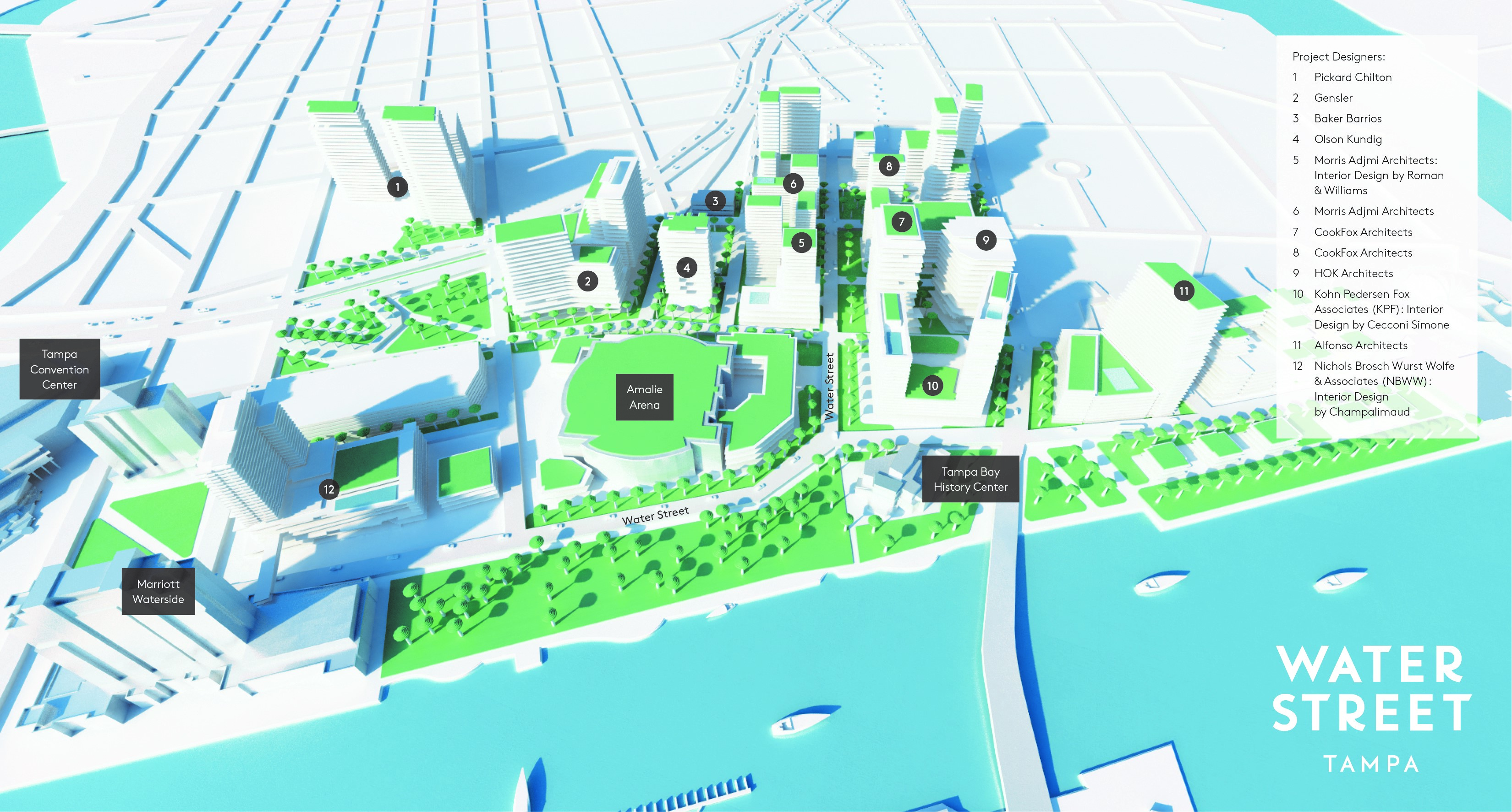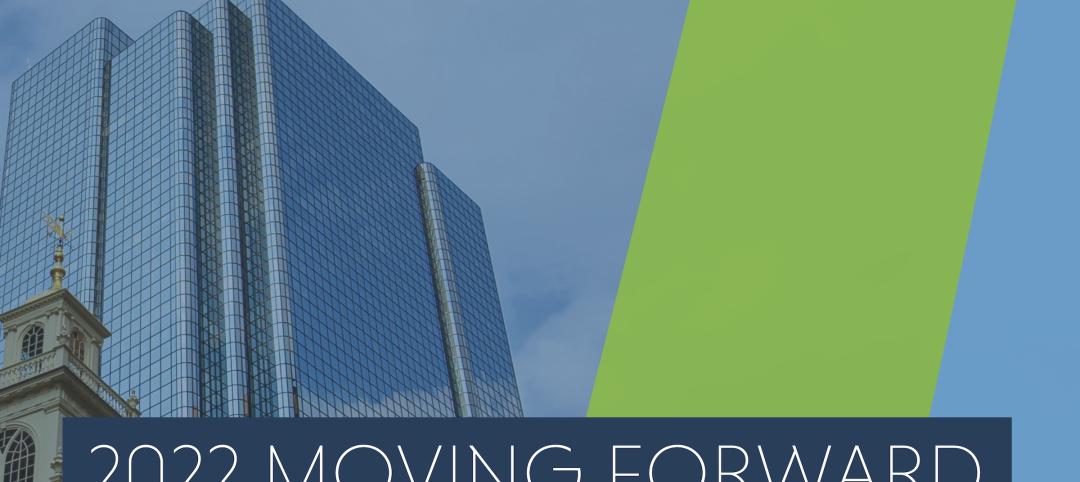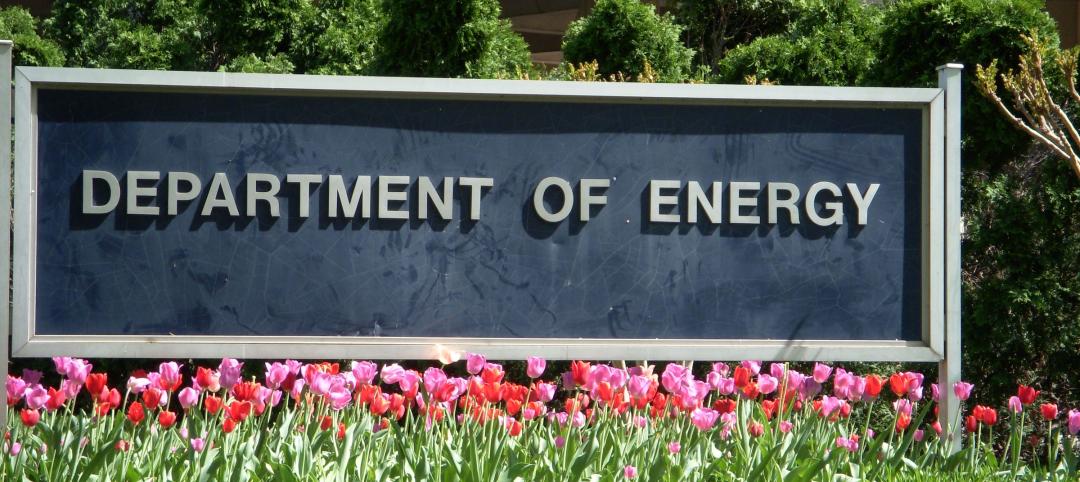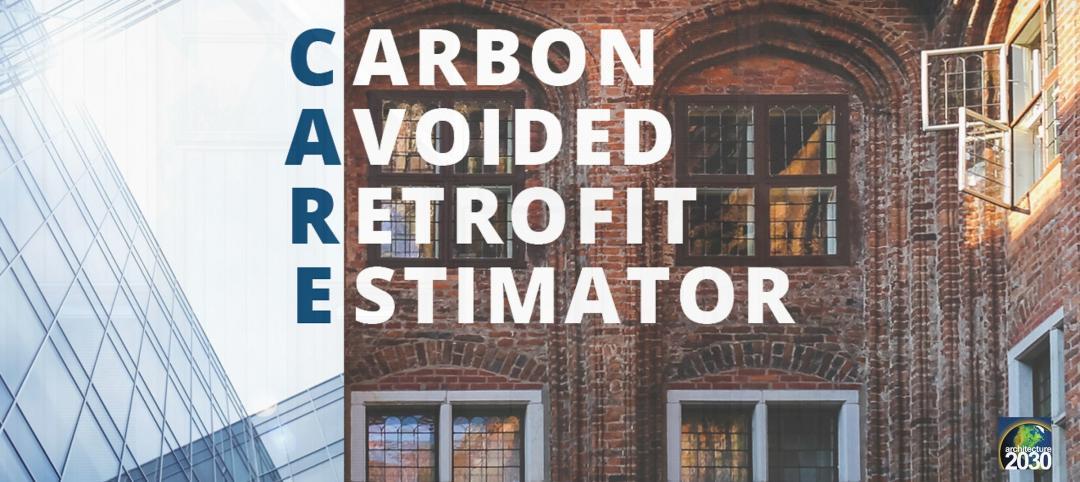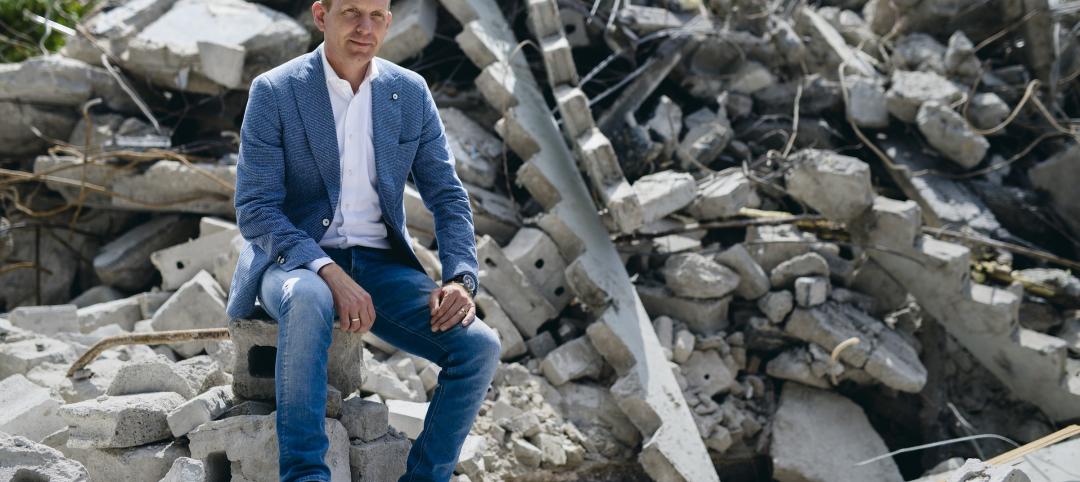After a summer of tumultuous and severe weather events that wreaked havoc on the Caribbean and the Southern United States, a certain segment of real estate and property managers still doesn’t see the value of incorporating resilience into their buildings or their operations.
That’s one of the key findings in Structure Tone’s second-annual Client Sustainability Report. The construction management firm polled a select group of 140 senior corporate real estate and facilities management professionals to gauge where sustainability comes into play for end users across the commercial real estate community.
Based on their responses, it would appear that “green building” is now mainstream. None of the respondents consider it a fad. More than three-fifths—62%—see LEED certification as a market differentiator, up nine percentage points from last year’s survey. And more than half of those polled agree that employees expect the buildings they work in to be LEED-certified.
Indeed, 45% of those polled said they would pay more to lease space in a green building. And 42% expressed concern about where their buildings rank in public energy disclosers.
“Last year there was a concern that when LEEDv4, a more stringent version of LEED, was implemented, many owners would simply stop pursuing certification. But our results show that’s simply not the case,” says Jennifer Taranto, LEED AP ID+C/BD+C, WELL AP, Structure Tone’s director of Sustainability.
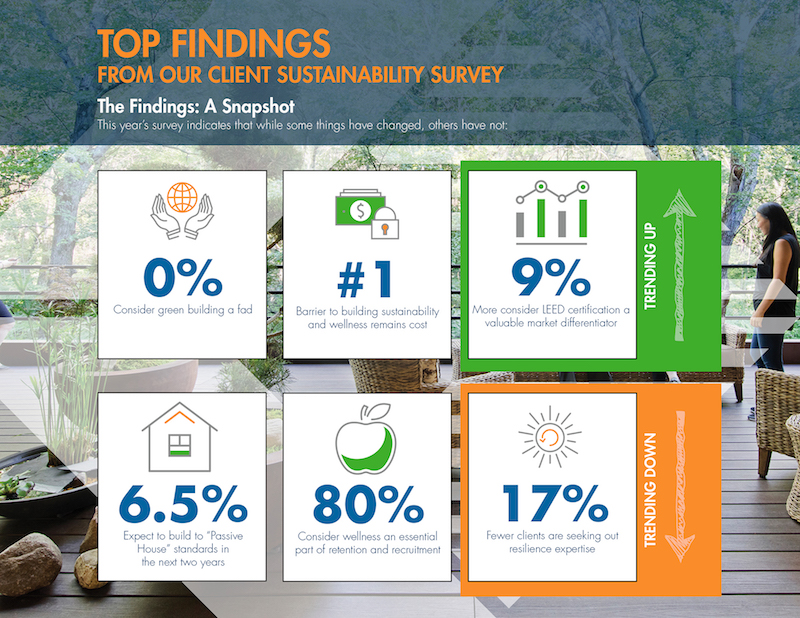
Sustainability is becoming mainstream, and LEED certification is still the gold standard in commercial real estate, according to Structure Tone's survey. Image: Structure Tone.
That being said, the No. 1 barrier to building green remains its cost for an overwhelming number of those polled. And there are still limits to how green the real estate and property management communities want to take their buildings. Only 11% of the survey respondents said their companies have policies that support progress toward Net-Zero Energy in the building sector. This is a slight downward movement from the previous year of 15%. “Surprisingly, 31% of respondents did not know if they have real estate in cities that have community-wide Net Zero goals,” Structure Tone reports.
Cost might also explain why the number of respondents who think resilience is important fell to 54%, from 61% last year. And 17% fewer respondents said they are seeking resilience expertise on their projects. (The survey was open to responses from March 1 through June 19, just months before Hurricanes Harvey, Irma, and Maria did their damage, and an 8.1-magnitude earthquake rocked Mexico City.)
Taranto tells BD+C that she was “surprised” by the lower responses about resilience. However, she also notes that the survey is in line with attitudes Structure Tone continues to encounter in the field from some clients that have yet to give resilience closer scrutiny.
Conversely, more real estate and property management professionals are embracing wellness as a standard for their buildings to pursue. More than 80% of those polled cited wellness as a relevant factor in recruiting and retaining employees. More than half of the respondents said they planned to seek expertise to devise wellness strategies for their buildings.
“Wellness is certainly coming to the forefront,” says Taranto.
Leading this charge is the International WELL Building Institute, which has developed wellness standards for buildings and communities. Water Street Tampa—a $3 billion mixed-use district under construction in Florida that BD+C reports on in a feature article about resilience in our October 2017 issue—on September 5 launched a pilot of the WELL Community Standard. This project, which when completed will have more than 9 million sf of commercial and residential space, is targeting to be the world’s first WELL-certified community.
One-quarter of respondents to Structure Tone’s survey said they were looking to do a WELL project within the next year.
In Structure Tone’s survey, 70% of the respondents work at companies with more than 1,000 employees. Two-thirds of those polled have square footage responsibilities that exceed 1 million sf. The top sector responses came from commercial office, data centers, healthcare, and pharma/life sciences.
Related Stories
Sustainability | Apr 4, 2023
ASHRAE releases Building Performance Standards Guide
Building Performance Standards (BPS): A Technical Resource Guide was created to provide a technical basis for policymakers, building owners, practitioners and other stakeholders interested in developing and implementing a BPS policy. The publication is the first in a series of seven guidebooks by ASHRAE on building decarbonization.
Sustainability | Apr 4, 2023
NIBS report: Decarbonizing the U.S. building sector will require massive, coordinated effort
Decarbonizing the building sector will require a massive, strategic, and coordinated effort by the public and private sectors, according to a report by the National Institute of Building Sciences (NIBS).
Multifamily Housing | Mar 24, 2023
Momentum building for green retrofits in New York City co-ops, condos
Many New York City co-op and condo boards had been resistant to the idea of approving green retrofits and energy-efficiency upgrades, but that reluctance might be in retreat.
Geothermal Technology | Mar 22, 2023
Lendlease secures grants for New York’s largest geothermal residential building
Lendlease and joint venture partner Aware Super, one of Australia’s largest superannuation funds, have acquired $4 million in support from the New York State Energy Research and Development Authority to build a geoexchange system at 1 Java Street in Brooklyn. Once completed, the all-electric property will be the largest residential project in New York State to use a geothermal heat exchange system.
Sustainability | Mar 16, 2023
Lack of standards for carbon accounting hamper emissions reduction
A lack of universally accepted standards for collecting, managing, and storing greenhouse gas emissions data (i.e., carbon accounting) is holding back carbon reduction efforts, according to an essay published by the Rocky Mountain Institute.
Green Renovation | Mar 5, 2023
Dept. of Energy offers $22 million for energy efficiency and building electrification upgrades
The Buildings Upgrade Prize (Buildings UP) sponsored by the U.S. Department of Energy is offering more than $22 million in cash prizes and technical assistance to teams across America. Prize recipients will be selected based on their ideas to accelerate widespread, equitable energy efficiency and building electrification upgrades.
AEC Innovators | Mar 3, 2023
Meet BD+C's 2023 AEC Innovators
More than ever, AEC firms and their suppliers are wedding innovation with corporate responsibility. How they are addressing climate change usually gets the headlines. But as the following articles in our AEC Innovators package chronicle, companies are attempting to make an impact as well on the integrity of their supply chains, the reduction of construction waste, and answering calls for more affordable housing and homeless shelters. As often as not, these companies are partnering with municipalities and nonprofit interest groups to help guide their production.
Multifamily Housing | Mar 1, 2023
Multifamily construction startup Cassette takes a different approach to modular building
Prefabricated modular design and construction have made notable inroads into such sectors as industrial, residential, hospitality and, more recently, office and healthcare. But Dafna Kaplan thinks that what’s held back the modular building industry from even greater market penetration has been suppliers’ insistence that they do everything: design, manufacture, logistics, land prep, assembly, even onsite construction. Kaplan is CEO and Founder of Cassette, a Los Angeles-based modular building startup.
Sustainable Design and Construction | Feb 28, 2023
Architecture 2030 launches free carbon calculator for retrofit projects
Architecture 2030’s Carbon Avoided Retrofit Estimator (CARE) tool allows project teams and building owners to accurately quantify the carbon “savings” in retrofit or reuse projects versus new construction.
AEC Innovators | Feb 28, 2023
Meet the 'urban miner' who is rethinking how we deconstruct and reuse buildings
New Horizon Urban Mining, a demolition firm in the Netherlands, has hitched its business model to construction materials recycling. It's plan: deconstruct buildings and infrastructure and sell the building products for reuse in new construction. New Horizon and its Founder Michel Baars have been named 2023 AEC Innovators by Building Design+Construction editors.


